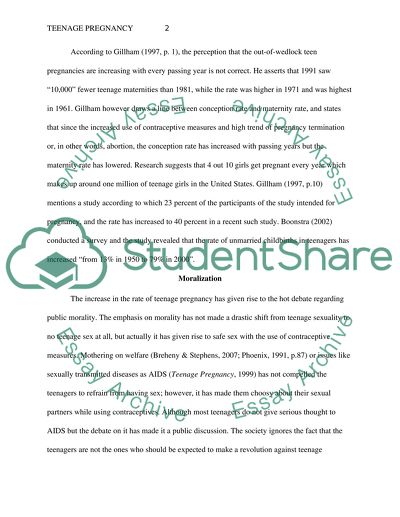Cite this document
(“Is teenage pregnancy a social problem Essay Example | Topics and Well Written Essays - 2250 words”, n.d.)
Retrieved from https://studentshare.org/environmental-studies/1410696-is-teenage-pregnancy-a-social-problem
Retrieved from https://studentshare.org/environmental-studies/1410696-is-teenage-pregnancy-a-social-problem
(Is Teenage Pregnancy a Social Problem Essay Example | Topics and Well Written Essays - 2250 Words)
https://studentshare.org/environmental-studies/1410696-is-teenage-pregnancy-a-social-problem.
https://studentshare.org/environmental-studies/1410696-is-teenage-pregnancy-a-social-problem.
“Is Teenage Pregnancy a Social Problem Essay Example | Topics and Well Written Essays - 2250 Words”, n.d. https://studentshare.org/environmental-studies/1410696-is-teenage-pregnancy-a-social-problem.


